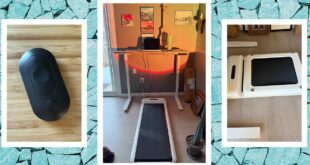Impulse Space has raised a massive new tranche of funding as big-name investors bet that moving satellites around in orbit will soon be a high demand service.
The startup, which was founded by Tom Mueller three years ago, announced the $150 million Series B round on Tuesday. Impulse is developing a line of orbital transfer vehicles (OTVs) that can adjust satellite positions in space after they’re launched by a rocket. While a handful of other firms are working on OTVs, Impulse says its products are differentiated for their chemical propulsion systems that offer very high delta-v, or change in velocity, capability.
The company has announced two OTVs so far: Mira, to provide last-mile deliveries for spacecraft getting dropped off on ride-share launches, and a larger high-energy kick stage called Helios to move spacecraft from low Earth orbit to geosynchronous orbit (GEO) in less than 24 hours. This is much faster than existing options, which are either more costly, like paying for a SpaceX Falcon Heavy to fly directly to GEO or Rocket Lab to have an Electron rocket drop you in a precise orbit, or time-consuming, with lower delta-V pushes to GEO over months.
“The satellite market is demanding enhanced maneuverability and rapid on-orbit responsiveness, which requires Impulse Space’s powerful, high delta-v vehicles,” Founders Fund partner Scott Nolan said in a statement. “Tom has built a team with deep expertise innovating on mission-critical technologies, positioning the company to reliably deliver while driving the future of in-space transportation.”
Mueller is well-known in the space industry: he was a founding employee of SpaceX and eventually became CTO of propulsion, where he led the development of the Merlin rocket engine that powers the Falcon 9 rocket and the Draco thrusters that power the Dragon spacecraft. He left SpaceX in November 2020 and founded Impulse less than a year later.
Since then the company has ticked off a handful of major milestones, including a successful first mission that flew in November 2023. The LEO Express-1 saw Mira take to orbit for the first time; the mission concluded after nine months, during which time Mira successfully deployed a customer’s payload and completed the largest-ever orbit raise (150 kilometers in 75 seconds) by an OTV on its inaugural flight, the company said.
There are strong signals that the Department of Defense is also interested in this capability: Impulse scored a handful of awards from the U.S. Space Force earlier this year, including two Small Business Innovation and Research grants under the force’s Tactically Responsive Space initiative. That program is designed to solicit capabilities from private industry that could enable the Space Force to move more quickly on orbit.
The startup has grown to over 140 people, with operations primarily based out of a 60,000-square foot facility in Redondo Beach, California.
Impulse is now focused on its second mission, LEO Express-2, which will see Mira deploy and host payloads for multiple unnamed customers later this year. An upgraded version of Mira will make its first launch in 2025, with Helios to make its first flight in 2026.
The round was led by Founders Fund, and includes participation from existing investors Lux Capital and Spring Tide, as well as new investors like DCVC. Other participants include 137 Ventures, Airbus Ventures, Alumni Ventures, Balerion Space Ventures, Elysium, First Principles Group, Island Green, Overmatch, RTX Ventures, Tamarack Global, and Trousdale Ventures.
The new funding follows a $45 million Series A that closed in July 2023.
Source link
 meganwoolsey Home
meganwoolsey Home


